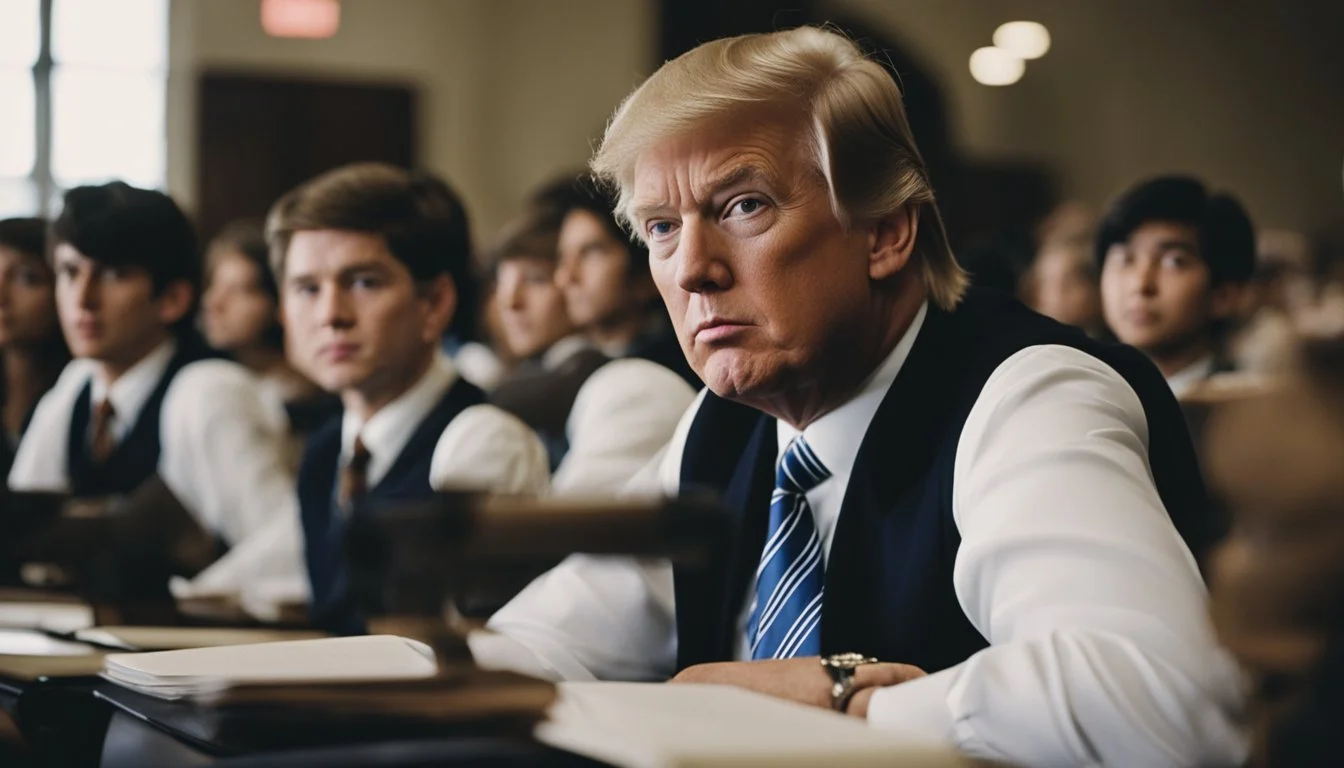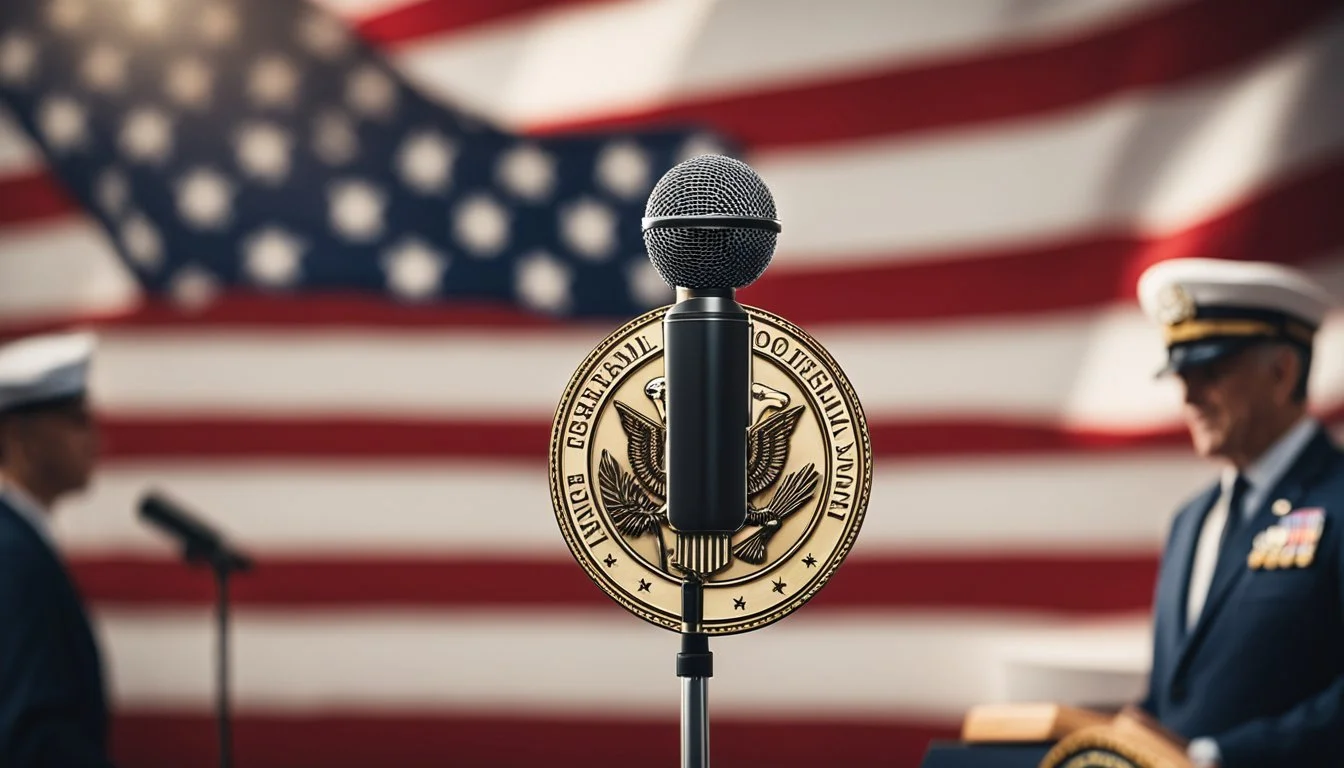How Old Is Donald Trump
Former President Turns 78 in 2024
Donald Trump, the 45th President of the United States, was born on June 14, 1946, in New York City. As of August 30, 2024, Donald Trump is 78 years old. His age has been a topic of discussion throughout his political career, especially as he continues to be a prominent figure in American politics.
Trump's age became particularly noteworthy when he first took office in 2017 at the age of 70, making him the oldest person to assume the presidency at that time. This record was later surpassed by his successor, Joe Biden. Despite advancing years, Trump remains active in the political arena and has secured the Republican nomination for the 2024 presidential election.
The former president's age has not diminished his influence or ambitions. Trump continues to captivate media attention and maintain a strong base of supporters. His birthday on June 14 each year serves as a reminder of his enduring presence in the public eye, even as he approaches his late 70s.
Early Life and Education
Donald Trump was born into a wealthy family in New York City and received his early education at private schools before attending university. His upbringing and educational experiences shaped his future business and political career.
Birth and Family Background
Donald John Trump was born on June 14, 1946, in Queens, New York. He was the fourth of five children born to Fred Trump, a successful real estate developer, and Mary Anne MacLeod Trump, a Scottish immigrant. The Trump family lived in a large house in the Jamaica Estates neighborhood of Queens.
Fred Trump's business success provided a privileged upbringing for young Donald. The family's wealth and connections in New York's real estate industry would later play a significant role in Donald's career path.
Education Journey
Trump began his education at the private Kew-Forest School in Forest Hills, Queens. At age 13, his parents enrolled him in the New York Military Academy due to behavioral issues. This strict environment aimed to instill discipline and focus in the young Trump.
After graduating from the military academy in 1964, Trump attended Fordham University for two years. He then transferred to the Wharton School of the University of Pennsylvania, graduating in 1968 with a bachelor's degree in economics.
During his university years, Trump received four draft deferments for education. This period coincided with the Vietnam War, a fact that would later become a point of discussion in his political career.
Business Career
Donald Trump built a vast business empire spanning real estate, entertainment, and branding. His career was marked by ambitious projects, high-profile acquisitions, and financial volatility.
Real Estate Developments
Trump joined his father's real estate company in 1968, renaming it The Trump Organization in 1971. He focused on Manhattan, acquiring and renovating the Commodore Hotel in 1976, which reopened as the Grand Hyatt. In 1983, Trump completed his signature project, Trump Tower, a 58-story skyscraper on Fifth Avenue.
Trump expanded into Atlantic City casinos in the 1980s, purchasing properties like Trump Plaza and Trump Taj Mahal. He also acquired the iconic Plaza Hotel in New York City for $407 million in 1988.
His real estate portfolio grew to include luxury residential buildings, golf courses, and resorts like Mar-a-Lago in Florida, which he purchased in 1985.
Expansion Into Entertainment
In the 1990s, Trump ventured into entertainment. He bought the Miss Universe pageant in 1996, which included Miss USA and Miss Teen USA. The pageants boosted his public profile and TV presence.
Trump's most significant entertainment success came with "The Apprentice" reality show in 2004. As host and executive producer, he popularized his "You're fired!" catchphrase and further enhanced his celebrity status.
He also authored several books, including the bestselling "Trump: The Art of the Deal" in 1987, which cemented his image as a savvy dealmaker.
Financial Decline and Resurgence
Trump's businesses faced significant financial troubles in the early 1990s. His casino holdings in Atlantic City struggled with debt, leading to corporate bankruptcies in 1991, 1992, 2004, and 2009.
Despite these setbacks, Trump managed to rebound. He shifted focus to licensing his name for various products and properties, leveraging his celebrity status for profitable branding deals.
By the 2000s, Trump had regained financial stability. Forbes estimated his net worth at $3.1 billion in 2019, though the exact figure has been subject to debate and fluctuation over the years.
Media and Public Image
Donald Trump's media presence and public image have been shaped by his television career and personal branding efforts. His reputation has been polarizing, with strong reactions both for and against him.
The Apprentice
"The Apprentice" catapulted Trump to new levels of fame. The reality television series, which aired from 2004 to 2015, featured Trump as a tough, successful businessman. He became known for his catchphrase "You're fired!"
The show averaged around 20 million viewers in its first season. It portrayed Trump as a savvy deal-maker and elevated his status as a celebrity businessman.
"The Apprentice" helped Trump build a persona of wealth and business acumen. This image would later play a role in his political aspirations.
Publications and Branding
Trump has authored numerous books, including "The Art of the Deal" in 1987. This bestseller further established his reputation as a shrewd negotiator.
He has licensed his name to various products and properties. Trump-branded items have included steaks, vodka, and a board game.
The New York Times and USA Today have reported extensively on Trump's business dealings and branding efforts. His name has appeared on buildings, golf courses, and hotels worldwide.
Trump's branding strategy has focused on luxury and success. This image has been both an asset and a source of criticism throughout his career.
Political Career
Donald Trump's political career was marked by his unexpected rise to the presidency and numerous controversies during his tenure. His unconventional approach to politics reshaped the Republican Party and American political landscape.
Presidential Campaign and Election
Trump announced his candidacy for the 2016 presidential election in June 2015. He ran as a Republican, positioning himself as a political outsider. His campaign focused on issues like immigration reform, trade deals, and "draining the swamp" in Washington.
Trump defeated a crowded field of Republican primary candidates. He faced Democrat Hillary Clinton in the general election. Despite losing the popular vote, Trump won the Electoral College and became the 45th President of the United States.
His 2020 re-election bid was unsuccessful. He lost to Democratic nominee Joe Biden in both the popular vote and Electoral College.
Policies and Controversies
As president, Trump implemented several significant policies. He appointed three Supreme Court justices and numerous federal judges. His administration passed tax cuts, renegotiated trade deals, and restricted immigration.
Trump's presidency was marked by frequent controversies. His use of social media, particularly Twitter, often sparked debate. He faced criticism for his handling of race relations, the COVID-19 pandemic, and foreign policy decisions.
His relationship with the press was contentious. Trump often labeled unfavorable coverage as "fake news" and had a combative relationship with many media outlets.
Impeachment Proceedings
Trump was impeached twice by the U.S. House of Representatives. The first impeachment in December 2019 stemmed from the Ukraine scandal. He was charged with abuse of power and obstruction of Congress. The Senate acquitted him in February 2020.
The second impeachment occurred in January 2021, following the January 6 Capitol riot. Trump was charged with incitement of insurrection. He left office before the Senate trial, where he was again acquitted.
These impeachments were historically significant, as Trump became the first U.S. president to be impeached twice. The proceedings highlighted deep political divisions within Congress and the nation.
Presidency
Donald Trump's presidency from 2017 to 2021 was marked by significant domestic and foreign policy changes, as well as unprecedented challenges. His administration pursued an America First agenda, focusing on immigration, trade, and deregulation.
Domestic Policy
Trump's domestic agenda centered on immigration reform and economic growth. He pushed for stricter border control, including the construction of a wall along the U.S.-Mexico border. The administration implemented travel bans on several predominantly Muslim countries, sparking legal challenges.
The Tax Cuts and Jobs Act of 2017 reduced corporate and individual tax rates. Trump appointed three conservative justices to the Supreme Court, shifting its ideological balance. His efforts to repeal the Affordable Care Act were unsuccessful, but his administration did eliminate the individual mandate penalty.
Gun rights were supported, with Trump opposing stricter firearm regulations. The COVID-19 pandemic emerged in the final year of his presidency, leading to economic shutdowns and a rushed vaccine development program called Operation Warp Speed.
Foreign Policy and Diplomacy
Trump adopted a populist and protectionist approach to foreign policy. He renegotiated trade agreements, imposing tariffs on China and other countries. The administration withdrew from the Paris Climate Agreement and the Iran nuclear deal.
Relations with North Korea fluctuated, including high-profile summits with leader Kim Jong Un. Trump pushed NATO allies to increase defense spending, criticizing what he viewed as unfair burden-sharing.
He moved the U.S. Embassy in Israel to Jerusalem and brokered normalization agreements between Israel and several Arab states. The administration also pursued a drawdown of troops in Afghanistan and Iraq.
Post-presidency Era
After leaving office, Trump maintained a significant presence in Republican politics. He faced legal challenges, including investigations into his business practices and his role in the January 6 Capitol riot.
Trump announced his candidacy for the 2024 presidential election, positioning himself as a leading contender for the Republican nomination. His post-presidency activities included rallies, endorsements of political candidates, and continued criticism of the Biden administration.
The former president's influence on the Republican Party remained strong, with many candidates seeking his endorsement. Trump's claims of election fraud in the 2020 election continued to shape political discourse and party dynamics.
Personal Life
Donald Trump's personal life has been marked by multiple marriages, five children, and public scrutiny of his health. His family has played a significant role in his business and political endeavors.
Family
Donald Trump has been married three times. His first wife was Ivana Trump, with whom he had three children: Donald Jr., Ivanka, and Eric. They divorced in 1992. Trump then married Marla Maples in 1993, and they had one daughter, Tiffany. Their marriage ended in 1999.
In 2005, Trump married Melania Knauss, now known as Melania Trump. They have one son together, Barron, born in 2006. Melania, a former model from Slovenia, became the First Lady of the United States during Trump's presidency.
Trump's adult children have been involved in his business empire and political activities. Ivanka, Donald Jr., and Eric have held executive positions in the Trump Organization.
Health and Wellness
Trump's health has been a topic of public interest, particularly during his presidency. In 2015, his personal physician, Dr. Harold Bornstein, released a letter stating Trump would be "the healthiest individual ever elected to the presidency."
Trump's medical records have shown he is overweight and takes medication for high cholesterol. He does not smoke or drink alcohol, citing his brother's struggle with alcoholism as a reason for abstaining.
During his presidency, Trump's annual physical examinations were conducted by White House physicians. These check-ups generally reported him to be in good health, though some medical professionals questioned the thoroughness of the assessments.
Legal Challenges and Investigations
Donald Trump faces numerous legal challenges related to his business dealings and political activities. These investigations span multiple jurisdictions and involve various allegations of misconduct.
Business Investigations
The Trump Organization has been scrutinized for potential financial improprieties. In 2022, the company was found guilty of tax fraud and other crimes in New York.
Prosecutors accused Trump of falsifying business records to conceal hush money payments. This led to criminal charges in Manhattan in 2023.
Trump's real estate valuations are also under scrutiny. The New York Attorney General filed a civil lawsuit alleging fraudulent practices in property assessments.
Political and Personal Accusations
Trump faced two impeachment trials during his presidency. The first in 2019 concerned alleged abuse of power and obstruction of Congress. The second in 2021 related to the January 6 Capitol riot.
In 2023, federal prosecutors indicted Trump on multiple felony counts. These charges stem from his handling of classified documents after leaving office.
The FBI searched Trump's Mar-a-Lago residence in 2022, recovering numerous classified materials. This unprecedented action against a former president sparked intense debate.
State and federal investigations continue into Trump's efforts to overturn the 2020 election results. These probes focus on potential election interference and abuse of power.
Public Perception and Criticism
Donald Trump's age and fitness for office have been subjects of ongoing public scrutiny and debate. Media coverage and political discourse have focused on his cognitive abilities and health, shaping public opinion in various ways.
Media Representation and Critiques
The New York Times and other major news outlets have covered Trump's age extensively. Critics have questioned his mental acuity and physical stamina, particularly during high-stress situations. Supporters argue that Trump's energy levels remain high despite his age. Some media reports have drawn comparisons between Trump and President Biden, who is three years older.
Conservative outlets often portray Trump as vigorous and sharp-minded. Liberal-leaning media tend to highlight gaffes or moments of apparent confusion. These contrasting narratives contribute to a divided public perception of Trump's fitness for office.
Public and Political Reception
Republicans generally view Trump's age as less problematic than Democrats do. A Gallup poll found that 37% of Americans believe Trump is too old to be president, compared to 67% for Biden. This disparity exists despite their relatively close ages.
GOP supporters often praise Trump's stamina at rallies and public events. Democrats frequently express concerns about his decision-making abilities and temperament. Some voters from both parties worry about the advanced age of top political leaders overall.
Trump's birthday in June 2024, when he turned 78, reignited discussions about age in politics. His critics argue that his age makes him less suitable for the rigors of the presidency. His defenders point to his business experience and previous term as evidence of his capabilities.
Trump's Age and Legacy
Donald Trump's age has been a notable aspect of his political career and legacy. His journey from businessman to president coincided with key milestones in his personal life.
Age Throughout Milestones
Trump was born on June 14, 1946, making him 78 years old as of 2024. At 70, he became the oldest first-term president in U.S. history, surpassing Ronald Reagan who took office at 69.
In 1971, at age 25, Trump's father Fred Trump named him president of the family real estate business. This early responsibility shaped his business career.
Trump married Ivana Zelníčková in 1977 at age 31. Their high-profile union lasted until 1992, spanning much of his rise to prominence in New York real estate and media.
At 70, Trump won the 2016 presidential election. His presidency from 2017 to 2021 made him the second-oldest president after Joe Biden.
In 2024, at 78, Trump became the oldest major-party presidential nominee in U.S. history. This distinction highlights the ongoing debate about age in American politics.







